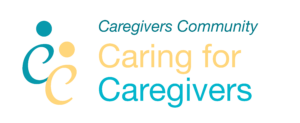** Edited by
Baha and Margaret Habashy
The Challenge
What do you do when your tank is empty?
How do you cope when the relentless physical toll of caregiving results in exhaustion, compromising the caregiver’s health? What can you really do?
Meet Roco
His name is Roco, but on the construction site where he spent most of his life, because of his size strength and stamina, people often called him Bull. Yes, he was as tough as a nail but in the community where he raised his small family, he was as helpful as the most versatile power tool.
Then came the day when his wife died from a major heart attack leaving him as the sole caregiver for his special needs son. Until that day, he never fully appreciated the load his wife carried all these years. Now, each day unfurled a new chapter in their journey, where the relentless physical toll left its mark on Roco’s tired bones.
His hands, once strong, now navigated a landscape of challenges – lifting, soothing, and supporting his son. The demands on his body echoed the demands on his heart. Yet, in the midst of exhaustion, Rocco found strength. He discovered solace in simple acts of self-care – a moment to sip tea, a stolen chapter of his favorite book.
The struggle was palpable, but so was the love that wove through each sacrifice. Roco’s story became a testament to the intricate dance of caregiving, where navigating the physical toll required not just the strength of body but a resilient spirit. As the sun dipped low in their small town, Rocco pressed on, a silent hero in a tale of unwavering love and the pursuit of well-being.
BIBLICAL INSIGHTS
Psalm 23:1:“The Lord is my shepherd, I lack nothing.”
Caregivers, facing physical and emotional exhaustion, can find comfort in recognizing God as their shepherd. This verse assures them that, under His care, they lack nothing essential for their journey, instilling hope and trust.
Isaiah 41:13:“For I am the Lord your God who takes hold of your right hand and says to you, Do not fear; I will help you.”
In moments of physical strain and fear, caregivers can draw strength from this verse. It conveys God’s promise to hold and help them through their challenges, providing assurance in times of exhaustion.
Matthew 11:28-30:“Come to me, all you who are weary and burdened, and I will give you rest. Take my yoke upon you and learn from me, for I am gentle and humble in heart, and you will find rest for your souls.”
This verse speaks directly to the physical toll of caregiving. Jesus’ invitation to find rest in Him acknowledges the weariness of caregivers, offering solace and rejuvenation for their bodies and souls.
2 Corinthians 12:9:“But he said to me, ‘My grace is sufficient for you, for my power is made perfect in weakness. Therefore, I will boast all the more gladly about my weaknesses, so that Christ’s power may rest on me.”
In acknowledging physical limitations, caregivers can find hope in this verse. It highlights that God’s grace is sufficient, and His strength is most evident in moments of weakness, offering encouragement and empowerment during the physical strains of caregiving.
THOUGHTS AND TIPS
- Establish a Daily Routine: Example: Create a consistent schedule for caregiving tasks, personal time, and breaks. A routine provides structure and predictability, reducing stress for both the caregiver and care recipient.
- Delegate Responsibilities: Example: Share caregiving responsibilities with family members or friends. Delegating tasks such as grocery shopping or meal preparation lightens the load on the primary caregiver.
- Prioritize Self-Care: Example: Dedicate time for activities that bring joy and relaxation, such as reading, taking a walk, or enjoying a hobby. Self-care is essential for maintaining physical and emotional well-being.
- Utilize Respite Care Services: Example: Take advantage of respite care programs that offer temporary relief. This allows caregivers to recharge, attend personal appointments, or simply take a break while ensuring their loved one receives proper care.
- Stay Organized: Example: Maintain a centralized system for medical records, important contacts, and caregiving schedules. Being organized reduces stress and helps prevent oversights in care.
- Utilize Assistive Devices: Example: Integrate assistive devices such as grab bars, walkers, or adaptive equipment to make caregiving tasks more manageable and reduce physical strain.
- Seek Emotional Support: Example: Join a caregiver support group or connect with friends who understand the challenges. Emotional support provides an outlet for sharing experiences and receiving encouragement.
- Plan Regular Breaks: Example: Schedule short breaks throughout the day to rest, stretch, or engage in activities that bring relaxation. Regular breaks prevent burnout and help caregivers recharge.
- Set Realistic Expectations: Example: Establish achievable goals for each day. Recognize that not every task may be completed, and it’s okay to prioritize based on the care recipient’s needs and the caregiver’s well-being.
- Explore Telehealth Services: Example: Use telehealth options for virtual consultations with healthcare providers. This reduces the need for physical travel and facilitates medical appointments more conveniently.
- Financial Planning: Example: Consult with a financial advisor to explore available resources, insurance coverage, and potential financial assistance programs, ensuring stability during the caregiving journey.
- Educate Yourself: Example: Attend workshops or online courses to enhance caregiving skills and stay informed about the care recipient’s condition. Education empowers caregivers to provide better care.
- Encourage Independence: Example: Foster the care recipient’s independence by involving them in decision-making and encouraging activities they can manage on their own, promoting a sense of control.
- Regular Exercise: Example: Incorporate physical activity into the daily routine, such as a short walk or gentle exercises. Regular exercise supports the caregiver’s physical health and energy levels.
- Effective Communication: Example: Establish clear communication with healthcare providers, family members, and the care recipient. Open communication ensures everyone is informed and aligned on care plans.
- Utilize Meal Services: Example: Explore meal delivery services or pre-prepared meal options to ease the burden of meal preparation. This ensures a nutritious diet for the care recipient without exhaustive cooking responsibilities.
- Time Management: Example: Develop a daily schedule that includes caregiving tasks, self-care, and breaks. Efficient time management allows caregivers to accomplish essential tasks while maintaining balance.
- Stay Informed about Community Resources: Example: Research local community services and resources that provide support for caregivers, such as transportation assistance, meal programs, or respite care options.
- Establish Boundaries: Example: Clearly define personal boundaries and communicate them to family and friends. Setting limits on caregiving tasks and responsibilities prevents overwhelming the primary caregiver.
- Plan for Emergencies: Example: Develop an emergency plan that includes contact information for healthcare providers, medications, and important documents. Preparedness ensures a swift and organized response in unexpected situations.
At our Community Forum you post your prayer requests, gain spiritual guidance, seek emotional support, and get answers to your caregiving questions. Moderated by qualified Christians, pastors, and healthcare professionals, it is our gift to serve you.
** Note: This blog content was developed with help from ChatGPT 3.5. The story, names and images are for illustration only.






Leave a Reply
Want to join the discussion?Feel free to contribute!